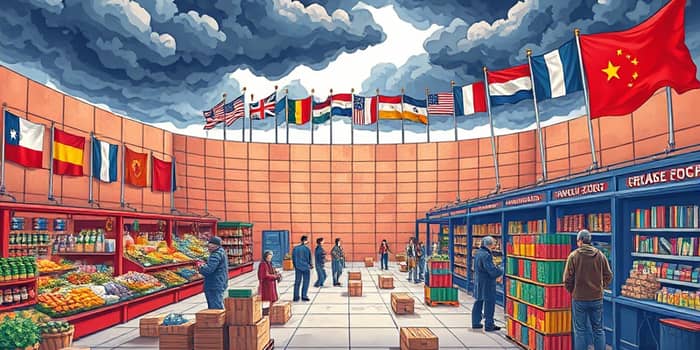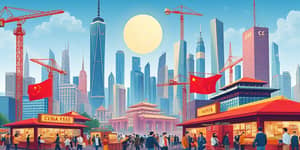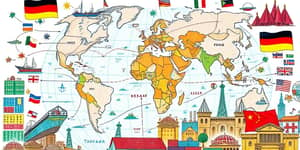In recent years, the global economy has experienced a significant shift due to escalating trade wars and a rise in tariffs. Countries that once thrived in open markets are now developing protectionist policies that potentially threaten the decade-long trend of globalization. This newfound tension between nations raises critical questions about the future of international trade and whether we are heading toward a period of de-globalization.
Trade wars, fueled by nationalism and economic self-interest, have become a norm as governments assert control over domestic markets. Tariffs, long regarded as relics of a bygone era, are being wielded as contemporary tools to reshape global trade dynamics.
As countries impose tariffs on imports, the reaction often leads to retaliatory measures that escalate into broader trade confrontations, affecting economies worldwide.
As economies become dependent on precise and complex global supply chains, the ramifications of such trade conflicts are profound. Preparing for the potential consequences of de-globalization necessitates a re-examination of how goods are made and traded, prompting businesses and governments alike to navigate uncharted waters.
The Rise of Trade Wars
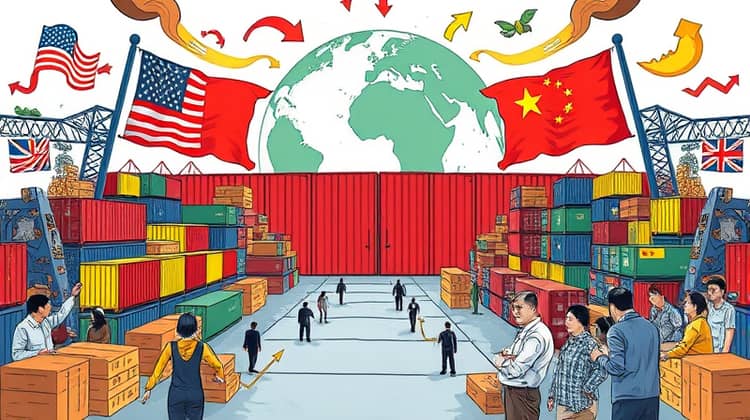
In the last few years, the resurgence of trade wars has surged to the forefront of international business conversations. Countries initially focusing on common economic goals have started prioritizing their national interests. This phenomenon, rooted in competitive nationalism, is causing significant disruption to the established trade order that many had come to rely upon.
The United States and China, the world’s two largest economies, have been at the center of these confrontations. Each country has imposed tariffs on billions in goods, claiming that the other is responsible for unfair trade practices.
These hostilities not only affect relations between the two powers but also have cascading effects on global markets and trade partners.
Tariffs: The Old Tools in New Hands
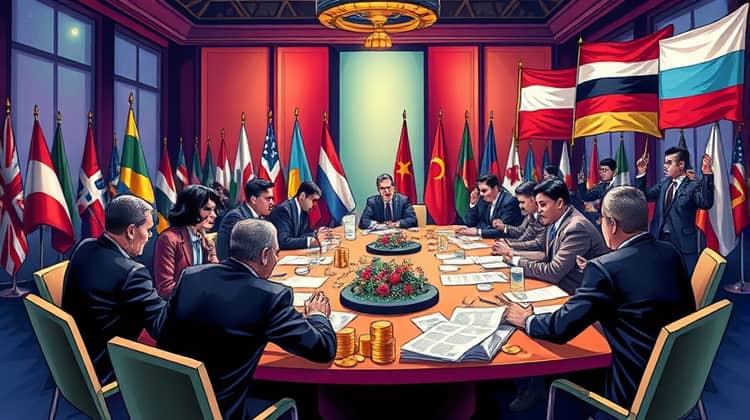
The concept of tariffs is not new; they have been utilized throughout history as a mechanism to protect domestic industries. However, their resurgence in modern politics is a troubling sign for open trade supporters.
Governments are increasingly looking towards tariffs as a means of protecting their economies from perceived external threats, rather than focusing on cooperation and trade liberalization.
In this new era of trade tensions, tariffs have become a strikingly visible tactic. Countries are no longer afraid to openly engage in tariff battles, hoping to gain leverage over trade negotiations. This trend is indicative of a shift in how nations perceive the benefits of international commerce, undermining decades of progress made toward global economic integration.
As governments focus on tariffs, there is a risk of creating an environment of uncertainty. Businesses that rely on global supply chains may find themselves struggling under increased costs due to tariffs, which can lead to inflation and slowed economic growth.
- Tariffs can disrupt established global supply chains.
- Increased input costs can lead to higher consumer prices.
- Retaliatory tariffs can generate cycles of escalating trade conflicts.
The Impact on Global Supply Chains
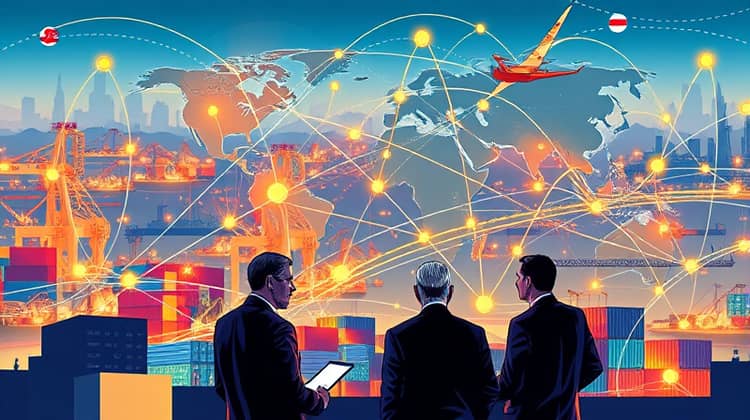
Global supply chains have been meticulously developed over the years, enabling companies to optimize production and reduce costs. However, the advent of trade wars is placing unprecedented strain on these systems, leading to a need for urgent reevaluation among businesses worldwide.
Companies are beginning to reconsider their dependency on international supply chains as tariffs raise costs and disrupt operations. The unpredictability associated with trade policies can undermine the efficiency that globalization once promised. Businesses are now faced with difficult decisions on whether to relocate production domestically or absorb increased costs.
- Businesses may need to diversify supply sources to mitigate risks.
- Companies could consider localizing certain aspects of production to reduce dependencies.
- Weakening global supply chains may lead to a future preferring regional production.
The realignment of supply chains demands agility and innovation, urging companies to find creative solutions to survive amid trade tension. The long-held belief in the benefits of globalization is swiftly fading as new strategies come to the forefront.
Regionalization: A New Form of Globalization?
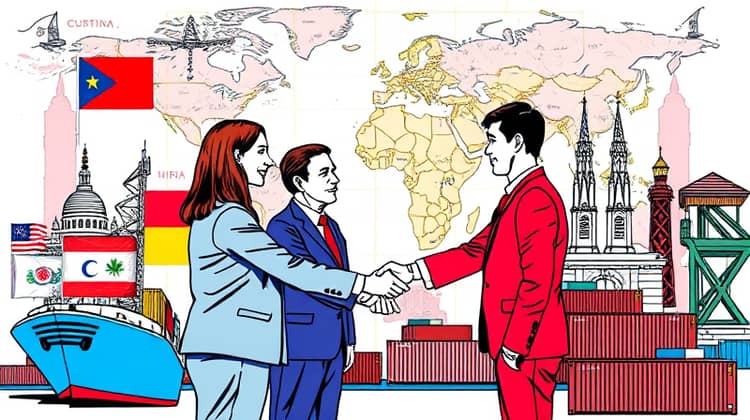
With the onset of trade wars, the notion of regionalization has gained prominence. This concept emphasizes strengthening economic partnerships within specific regions as opposed to relying heavily on global connections.
For instance, countries may prioritize trade agreements with neighboring nations, fostering localized supply chains and exchanging goods without entering the contentious global landscape.
Regionalization may present an opportunity for countries to bypass the uncertainties of trade wars; however, it does raise concerns over the creation of new economic blocs that may isolate others. The challenge lies in balancing the need for robust regional ties while maintaining interconnectedness with a broader, global market.
- Regional trade agreements are on the rise.
- Economic integration within regions may lead to increased stability.
- Certain industries may benefit from focusing solely on regional markets.
The Case for De-Globalization

Proponents of de-globalization argue that the current trajectory of escalating tariffs and trade wars can have long-term benefits for national economies. They posit that countries can reclaim control over their markets, promoting local industries and job growth while reducing reliance on foreign imports.
This perspective challenges the status quo of globalization, advocating for a more self-sufficient approach to economic development.
However, the case against de-globalization highlights risks related to decreased competition, potential monopolies, and inflation associated with higher production costs.
Experts warn that isolationism may lead to stagnation, adversely affecting innovation and consumer choice, and urging for a middle ground that allows for protective measures while remaining internationally engaged.
As nations navigate these uncertain times, the balance between protecting domestic interests and maintaining healthy global trade is crucial to avoiding economic pitfalls.
- De-globalization could lead to job growth in domestic industries.
- Being self-sufficient can reduce vulnerability to external shocks.
- There is a need to balance protectionist measures with global trade relationships.
Ultimately, the debate over de-globalization will profoundly shape the future of international commerce, forcing stakeholders to reconsider their approach to trade and cooperation.
Conclusion
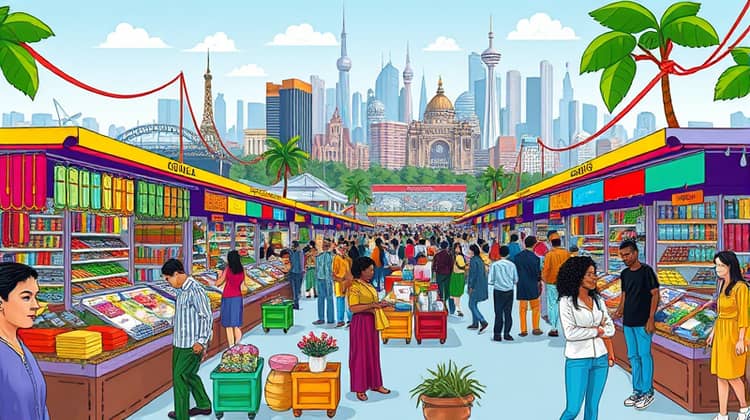
The world stands at a pivotal moment as trade wars and tariffs reshape the contours of global economics. Policymakers and businesses must strive to forge new pathways through this uncertain landscape, balancing domestic priorities with international collaborations. The future of globalization hangs in the balance, with de-globalization presenting both risks and opportunities.
While the rise of protectionism has led some to reconsider the fundamental principles of international trade, it is essential to approach these changes with a nuanced understanding.
Not all trade is detrimental, and healthy global trade can foster innovation and growth. The challenge lies in establishing fair, equitable trade systems that benefit all parties.
As we look ahead, the lessons learned during this turbulent period will undoubtedly inform the future of global trade dynamics. The road to a more constructive global marketplace will require collaboration, creative solutions, and an unwavering commitment to economic stability.

